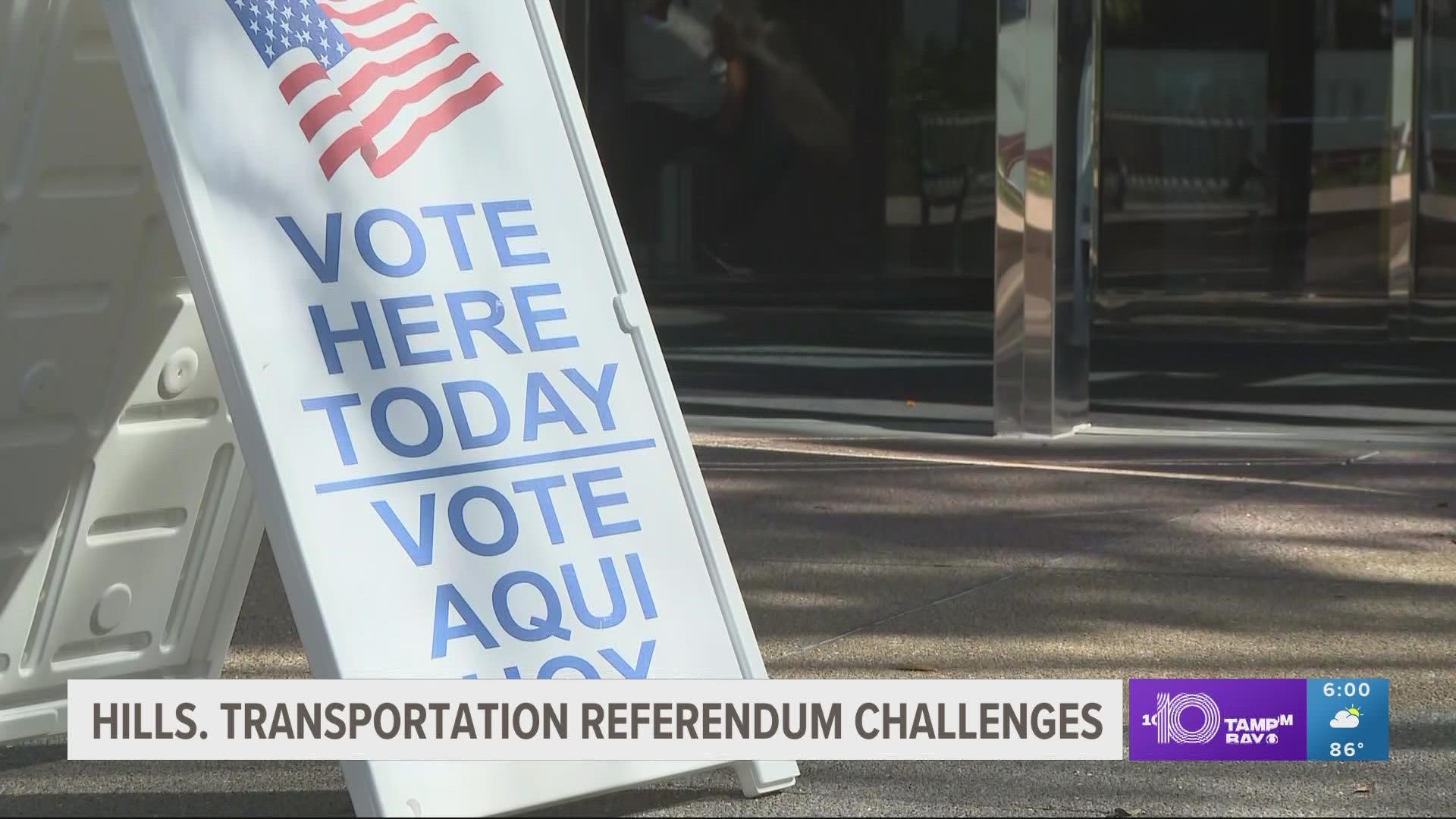TAMPA, Fla. — First, Hillsborough County’s transportation referendum was on the ballot.
Then, it wasn’t going to count after a judge said the language was too confusing.
After that, an appeals court said it could remain on the ballot and votes could be tabulated while they decide whether to overturn the circuit court’s ruling. And then, that decision could be appealed.
Confused? Legal experts say that’s the problem.
And regardless, the outcome seems destined to face a completely separate court challenge, as well.
On Oct. 28, Hillsborough’s Supervisor of Elections office did what a judge ordered them to do. They posted notices online, added them to outgoing vote-by-mail ballots and told people at the early-polling sites that votes on the Hillsborough 1-cent transportation referendum would not count because a judge had deemed the referendum language misleading.
A stay put it back on — and then off again — when that same judge issued a full ruling.
Hillsborough County commissioners voted to appeal, and the appellate court said while it decides whether to overturn the lower court’s ruling the ballot measure is back on.
So, that same day the notices came down.
“It gets a little confusing with all the people in charge arguing back-and-forth of what is or isn’t appropriate,” voter Lisa Jarretd said.
Experts in election law say this whole legal back and forth — plus the fact that some people who might have otherwise voted on the referendum perhaps ignored the ballot measure after being told it would not count — likely means the losing side here will appeal.
“They clearly, in my mind, have an issue,” attorney Patrick LeDuc said. “Because what they can claim is, they could say, hey, look, this was off the ballot now it’s back on. People who would’ve voted against this were under the impression that it was no longer on the ballot.”
Karen Jaroch, the local activist who brought the lawsuit against this particular referendum, has until the night of Nov. 1 to respond to the latest appeal.
Leduc’s advice is to vote on the issue if it’s important to you. That way your ballot will at least be recorded and preserved while the courts hash this out.
LeDuc says there have been occasions in the past where a referendum was struck down but still appeared on the ballot because it was too late to remove it. He does not, however, recall a situation such as this where the issue was still being hashed out even as people were heading to the polls to vote on it.

